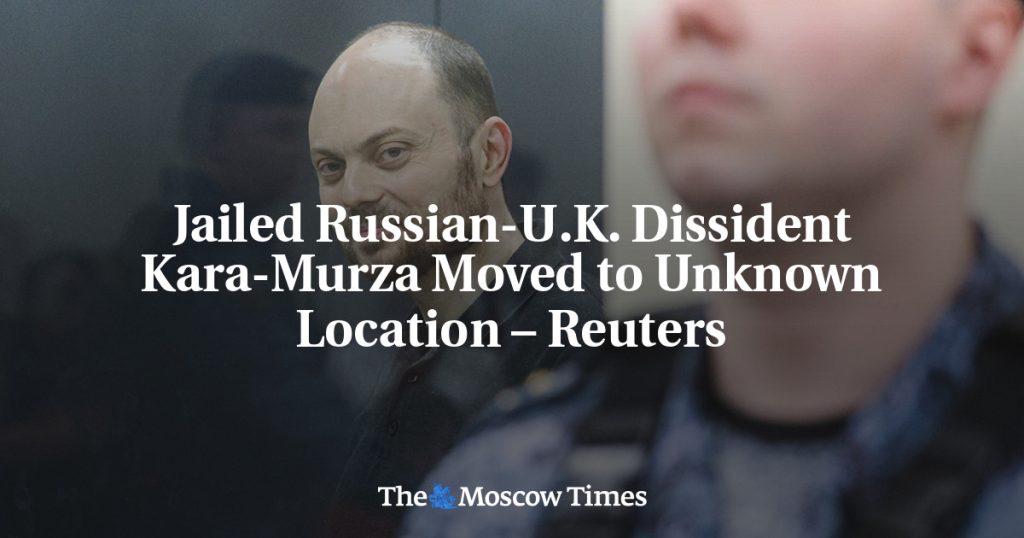Kremlin critic Vladimir Kara-Murza, who is serving a 25-year prison sentence for treason and other charges, was removed from his prison in Siberia and transferred to an unspecified location, according to Russia’s prison service. Kara-Murza, a dual Russian-British national, had been scheduled to attend a court hearing in Omsk but was transferred before the hearing. His lawyer had been barred from meeting with him in recent days, raising concerns about his well-being. Kara-Murza was hospitalized earlier in the month due to a severe chronic disease that prevents him from serving his sentence in a penal colony.
The reported transfer of Kara-Murza comes amidst speculation that Moscow is preparing a large-scale exchange with Western governments, as several other political prisoners in Russia have also been relocated to unknown locations in recent days. Kara-Murza was arrested in April 2022 after criticizing Russia’s invasion of Ukraine and advocating for Western sanctions against the Kremlin. Despite being behind bars, he has continued to campaign against Putin and push for investigations into his claims of being poisoned. Concerns about his health have been raised by his family and supporters, particularly due to a nerve condition he developed after surviving two poisoning attempts in the 2010s.
As Kara-Murza’s situation remains uncertain, there has been growing concern about the conditions faced by political prisoners in Russia and the government’s crackdown on dissenting voices. The Kremlin’s actions, including the designation of The Moscow Times as an “undesirable” organization and labelling it as a “foreign agent,” reflect a broader effort to silence independent journalism in the country. Despite these challenges, The Moscow Times continues to strive for accurate and unbiased reporting on Russia. Support from readers is crucial to ensure the survival of independent journalism in the face of repression.
The fate of Vladimir Kara-Murza highlights the ongoing struggle for human rights and freedom of expression in Russia, where critics of the government face persecution and imprisonment. The activist’s case has garnered international attention, with calls for his release and concerns about his deteriorating health while in custody. As political prisoners like Kara-Murza are moved to unknown locations amid speculation of potential exchanges with Western governments, the need for transparency and accountability becomes increasingly urgent. The continued efforts of journalists and activists to shed light on these issues are crucial in holding the Russian government accountable for its treatment of dissenting voices.
The challenges faced by independent media outlets like The Moscow Times underscore the broader threats to press freedom in Russia, where critical reporting is met with censorship and repression. The government’s attempts to silence dissenting voices through legal and extralegal means pose a direct threat to democracy and the rule of law. By supporting independent journalism and advocating for the rights of political prisoners like Kara-Murza, individuals can help uphold the principles of free speech and democracy in Russia. The international community plays a crucial role in raising awareness about human rights abuses and pressuring the Russian government to respect fundamental freedoms and the rule of law.
In the face of ongoing repression and censorship, the resilience of journalists and activists in Russia is a testament to their commitment to truth and justice. By standing in solidarity with those who dare to speak out against injustice, individuals can help amplify their voices and support efforts to hold the Russian government accountable for its actions. The plight of Vladimir Kara-Murza and other political prisoners serves as a stark reminder of the challenges faced by those who oppose the Kremlin’s authoritarian rule. It is essential for the international community to continue advocating for the release of political prisoners and the protection of fundamental rights in Russia, in order to ensure a more just and democratic future for all.















